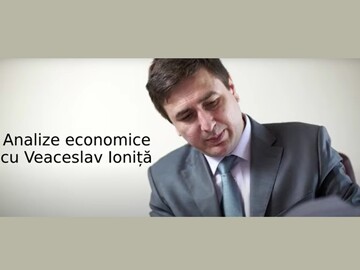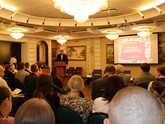
Moldova's economy has entered a recession: growth has been virtually zero for five years, and economic weakness is comparable in scale to the crisis of the 1990s - Veaceslav Ioniță
The economic expert made this statement on November 7th, during a weekly broadcast analyzing the results of the IDIS Viitorul and Friedrich Ebert Foundation study "The 100 most urgent problems of the Republic of Moldova in 2024." Veaceslav Ioniță noted that Moldova entered a state of economic recession in 2024, with two consecutive quarters of GDP contraction. According to him, the recession is not an isolated phenomenon, but a reflection of the deep weakness of the Moldovan economy, which has been unable to overcome systemic problems for many years. "Over the past five years, Moldova's GDP has grown by only 0.4%. Growth is projected for 2025 at no more than 1%, which effectively means stagnation." "It was only worse in the 1990s, during the collapse of the Soviet system," the expert noted. The main decline was in agriculture, down by 7 billion lei, and industry, down by 3 billion lei. Over the past five years, industrial production has fallen by 1.3%, while agricultural production has declined by 2.8%. Exports have fallen by almost $500 million, and this trend continues. Moldova primarily exports raw materials and imports finished products. "We have gone from being oil exporters to sunflower seed exporters and oil importers. The agricultural trade balance has become negative—something that hasn't happened in decades," emphasized Veaceslav Ioniță. The number of people employed in the economy has fallen to 808,000—the lowest level on record. Another pressure factor is the sharp rise in energy prices: the gas tariff has increased from 4.64 to 29.27 lei per cubic meter. The absolute poverty rate increased from 31% to almost 50% in the south of the country, from 26.5% to 32.2% in the north, and from 7% to 11% in Chisinau. Foreign investment fell from $4.9 billion to $4.8 billion, making Moldova the country with the lowest per capita investment in Eastern Europe. Public debt increased from 124.6 billion to 131.2 billion lei, with a significant portion of borrowing being used for consumption rather than development. According to Veaceslav Ioniță, Moldova is experiencing a period of profound economic weakness, comparable in scale only to the crisis of the 1990s. // 07.11.2025 – InfoMarket.







